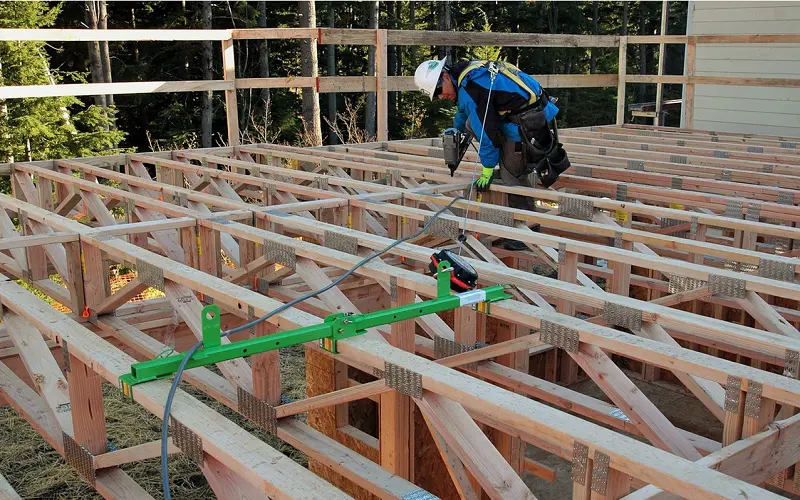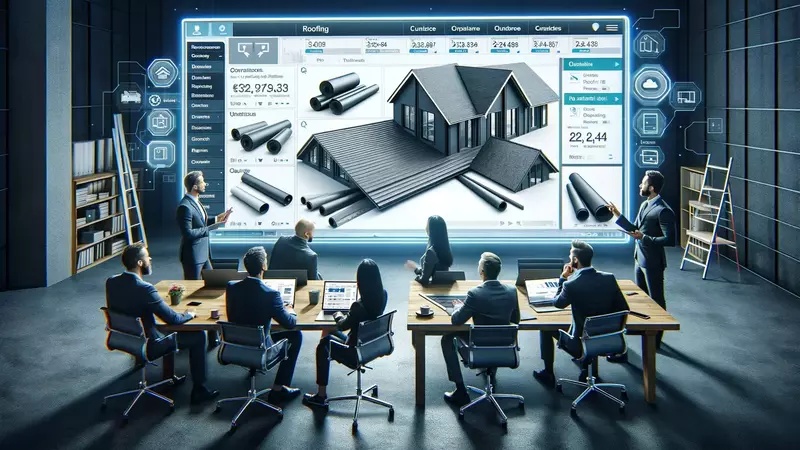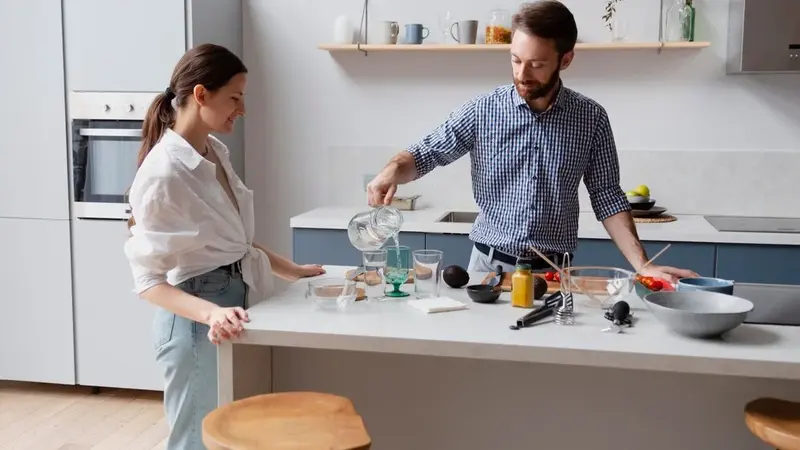Running a business comes with many challenges. One thing people often forget about is the roof. A strong roof can help a building look better and work better too.
Modern roofing does more than just cover a building. It can save energy, last longer, and protect from bad weather. Today, many business owners also care about the environment, so picking a smart, long-lasting roof is a good choice for the future.
Enhanced Durability
Modern roofing systems are built to last longer than older types. They can handle tough weather like wind, heavy snow, or hail without breaking down fast. Strong materials like metal or TPO (thermoplastic polyolefin) help the roof stay in good shape for many years.
These materials don’t just protect better-they also mean fewer repairs and less money spent over time. With regular care, these roofs can last over twenty years. This makes them a smart choice for business owners who want fewer problems and more savings in the long run.
Improved Energy Efficiency
Modern roofs help save energy, especially in hot places. Some have shiny or light-colored surfaces that bounce sunlight away, so buildings stay cooler inside. This means air conditioners don’t have to work as hard, and that can lower electricity bills.
Cooler roofs also help make offices or stores more comfortable for workers and customers. Studies show that reflective roofs can be much cooler-up to 60 degrees-than regular ones. Over time, this makes the whole building use less energy and saves money while being better for the environment.
Weather Protection
Modern commercial roofing systems are specifically designed to provide better weather protection. With advancements in materials and technology, these roofs offer exceptional resistance to moisture, UV radiation, and extreme temperatures. This leads to fewer leaks and less water damage, protecting your business’s inventory and infrastructure. For instance, EPDM (ethylene propylene diene monomer) roofs are known for their weather-resistant properties, making them ideal for areas prone to heavy rainfall.
Low Maintenance Requirements
One of the standout advantages of modern commercial roofing systems is their low maintenance demands. Unlike traditional roofing materials that may suffer from frequent wear and tear-like cracked shingles or water leaks-modern options are designed with durability in mind. Materials such as TPO, PVC, and metal are resistant to common issues like mold growth, UV degradation, and water pooling.
Additionally, these roofs often feature seamless or reinforced designs that reduce the chances of failure at joints or edges, which are common trouble spots. This results in fewer repair calls, less disruption to business operations, and reduced maintenance costs over time. For business owners and property managers, this means more predictable budgeting and more time to focus on strategic priorities rather than constant roof upkeep.
Contributing to Environmental Sustainability
Modern commercial roofing systems do more than just protect buildings-they actively support broader environmental goals. Many of today’s roofing materials are manufactured with recycled or recyclable components, reducing the environmental burden associated with raw material extraction and waste. Some systems, such as cool roofs, are specifically designed to reflect more sunlight and absorb less heat, thereby lowering the urban heat island effect commonly seen in densely built areas.
Incorporating additional features, like solar panels or green (vegetative) roofing, can further amplify sustainability benefits. Green roofs not only improve insulation but also help manage stormwater runoff and improve air quality. As regulations and consumer expectations shift toward eco-conscious practices, investing in sustainable roofing solutions positions businesses as forward-thinking and environmentally responsible.
Strengthening Property Value
A strong, well-maintained roofing system adds lasting value to any commercial property. When businesses invest in modern roofing materials and technologies, they not only improve the building’s appearance but also boost its overall market appeal. Potential buyers and tenants are attracted to properties with energy-efficient and low-maintenance roofs because these features lower ongoing costs and reduce future repair needs.
Additionally, a durable roofing system signals that the property has been cared for properly, which builds confidence in its condition. Studies show that commercial buildings with upgraded roofing systems tend to have higher resale values and attract better lease terms. This makes investing in quality roofing a smart financial decision that pays off through increased asset worth and better returns over time.
Different Types of Modern Roofing Systems
Picking the right roof is important for any business building. Today, there are many kinds of roofs made to fit different needs and budgets. Here are some common types of modern roofing:
Metal Roofing
Metal roofs last a long time and handle bad weather well. They are made from materials like steel or aluminum and can reflect sunlight to keep buildings cool. Metal roofs are also light and save energy.
TPO Roofing
TPO roofs are made from a single layer of plastic. They reflect sunlight and help lower cooling costs. TPO roofs are flexible, easy to install, and strong against damage.
EPDM Roofing
EPDM is a rubber roof used on flat or low-sloped buildings. It protects well against sun and weather and lasts many years. EPDM roofs are easy to fix and take care of.
Built-Up Roofing (BUR)
BUR roofs are made by stacking layers of tar and fabric. They are heavy but very strong and keep water out. BUR roofs are often used on flat buildings.
Modified Bitumen Roofing
This roof is like BUR but made stronger and more flexible. It is also good at keeping water out and works well on flat roofs. It handles hot and cold weather better than older types.
Green Roofing Systems
Green roofs have plants and soil on top. They help keep buildings cooler, clean the air, and manage rainwater. Though harder to install, green roofs are good for the environment and protect the roof underneath.
Investing Wisely in Roofing Systems
Modern commercial roofing systems give many good benefits that business owners should notice. They last a long time, save energy, need less fixing, and help the environment. When choosing a roof, think about these benefits and how they fit your business. Buying a good roof is not only about looks-it also keeps your business safe and adds value over time.
For more related topics, check out the rest of our blog!




